NTL's LEGACY: CHANGING THE WORLD THROUGH TRANSFORMATIVE LEARNING
1946 Discovery of the T-Group™ - The New Britain Workshop.
NTL grew out of a seminal discovery in 1946, a short time after WWII when the world was experiencing an explosion of behavioral science research. Culturally, the world stood in the aftermath of a great struggle between totalitarianism and democracy. Democracy prevailed and was valued by social scientists in the US for its alignment with scientific research, human development, and the potential to act for the collective good. Understanding of the power of groups had advanced before and during the war as a result of research and practice innovations, many of which were in service of the war effort.
In 1946, Kurt Lewin, then Director of MIT's Research Center for Group Dynamics - a German Jew who had migrated from Germany and conducted ground-breaking research on small groups, race relations, and inter-group conflict - organized a workshop in New Britain, Connecticut to teach skills in small group effectiveness and community change to community leaders. The Workshop was developed at the request of the Connecticut Interracial Commission. Its goal was to develop local change agents to combat racial, ethnic, and religious discrimination and promote fair employment in Connecticut.
The workshop featured recently developed small-group training techniques and included both training and research staff, some of whom served as observers of the groups as they worked together. The whole staff - trainers, observers, researchers, and Lewin met each evening to reflect on their observations of group and trainer behavior. When participants asked if they could attend these meetings, Lewin, ever the curious researcher, welcomed their participation. Soon the participants were adding their observations to the conversations, sometimes contradicting those of the staff. Ken Benne, one of NTL's founders, tells the story of the New Britain workshop in a 1992 interview. (Click here to view a clip from the interview. [YouTube])
As reported by Benne, these meetings quickly became the best attended of the conference. The staff was surprised and excited by the energy these discussions generated, and the implications for participant (and staff) learning from their own behavior in groups. The staff resolved to carry on the participant-centered laboratory learning in a more focused way the following summer. This was the genesis of NTL and what was to become the T-Group™ (standing for "Training" group) that became NTL's seminal contribution to experiential learning in and about human interaction in groups.
1947: NTL in Bethel, Maine
Lewin died an unfortunate, early death before he could be present for the first summer session of what became the National Training Laboratory for Group Development. (The name eventually evolved to the "NTL Institute for Applied Behavioral Science".) The staff chose Bethel, Maine, a small village nestled near New Hampshire's White Mountains, as the workshop location, noting its remoteness and slower pace.
The Bethel community was viewed as a "cultural island" - a small town, a relatively self-contained village that provided separation from the usual distractions of personal and organizational life. It had a meeting site, a well-known private school named the Gould Academy, which provided a viable meeting space. Bethel proved a wonderful place for NTL's work that first NTL summer and for many years thereafter.
NTL's relationship with Bethel lasted for over 45 years as staff and program participants from the US and other parts of the world returned summer after summer to learn in the intensive T-Group™ experience and in other laboratory learning formats that fostered personal development, explored organizational and community change, and served as a petri dish for new concepts and innovations in personal and organizational development. These years, and the relationships that developed with the town and people of Bethel, forever intertwined NTL's history with that of the Bethel community; and with the life-changing experiences many had there.
The Founders of NTL
Three scholar-practitioners who worked closely with Kurt Lewin to develop and staff the New Britain workshop, Leland Bradford, Ron Lippitt, and Ken Benne, became the founders of NTL. Passionate believers in the work that had begun in New Britain the year before, they took responsibility for organizing the 1947 NTL Workshop and Bethel summer meetings for many years thereafter. The values, scholarship, and skills they brought to the formation of NTL, following the intellectual heritage fostered by Kurt Lewin, laid a path that trails through NTL today.
Joined by renowned scholars, researchers, and practitioners in decades of summer sessions in Bethel, NTL developed concepts and practices in group training and development that inform much of today's understanding of group life and how to make groups more effective. In addition, NTL and its members made significant contributions to the broader applications of social change and collaboration technologies as pioneers in the early thinking about, and practice of, Organization Development and collaborative community change.
T-Group™, Laboratory Education and Social Change practices spread worldwide.
As T-Groups™ and other laboratory learning methods spread throughout the US and the world, NTL members took their small-group training expertise and the T-Group™ to Europe, Asia, Africa, and South America. Many developed ongoing collaborations with other scholars and practitioners worldwide. These collaborations included helping to establish the Indian Society for Applied Behavioural Science, which today conducts its own version of T-Groups™, and collaborative interchanges with the Tavistock Institute in the United Kingdom, which had pioneered the use of group methods for the treatment of traumatized warriors during and after WWII and was developing its own experiential small- group theory and training methods.
The powerful, often transformative learning experiences of NTL T-Group™ participants led many trainers to attempt to adapt the T-Group™ as an 'in-house' training experience. These efforts were mostly unsuccessful as their dynamics differed from NTL's "stranger" groups, which were not constrained by the multitude of ties, authority, and competitive relationships inherent in organizational life. However, the learning from years of T-Group™ research and practice fostered a more targeted use of small-group dynamics and group development in the creation of team-building methodologies commonly practiced in organizations today, as well as adaptations of group methods to race relations, gender, and identity development, and inter-group conflicts. Other adaptations included intensive approaches to small-group and individual development that significantly influenced the personal-growth movement that emerged in the 1960s.
Seeking to apply NTL change theory and practices, including action research, to larger systems, NTL and its members developed seminal group, organization development, and whole-scale methodologies which are foundational for current practices in organization development and large system change and for equitable, inclusive change practices. As the field of organizational and personal development has expanded over the years, NTL members have made significant contributions to the development of later approaches to the theory and practice of change, such as Gestalt Organization Development, Group Relations, Appreciative Inquiry, Complex Organizational Change, Large Group Methods, Dialogical OD, and Diversity, Equity, and Inclusion (DEI).
NTL members teach regularly at universities, and in the past NTL has joined with schools of higher education such as John F. Kennedy University, Cleveland State, and The American University (for over 25 years in a joint Masters in OD program) in collaborative learning programs and certificates.
Today, NTL seeks to continue to play a significant role in the development and practice of transformative, human system approaches to personal and group development, and to organizational change. It continues to conduct T-Groups™ in its Human Interaction Laboratory®, train OD practitioners, and develop participative approaches to change. (See NTL Today)
NTL Living Its Values, an Organizational Journey.
Two inflections in NTL's organizational journey are important to an understanding of NTL today. Both were a result of NTL's interaction with important shifts in the larger world environment.
The 1960's in the United States was propelled by important social and societal movements - blossoming personal growth programs (including those of NTL); a loosening of tight strictures around sexuality and alternative lifestyles epitomized by the "hippy" movement; and, importantly, a massive civil rights struggle that mobilized activist black and white Americans to challenge US legal, cultural, and organizational racism. NTL was challenged to bring its organization into alignment. By 1970, NTL faced serious questions about the makeup of its membership and governance, including its largely white male leadership and staff, from a diverse population of participants and, significantly, from accomplished women members of NTL who had experienced exclusion from key staffing and leadership roles. These challenges crested during and after the 1970 retirement of Leland Bradford who had served for 23 years as Director of NTL. They came coincident with a financial crisis brought on by program overreaches of the NTL Board (they had attempted to form an NTL University) after relatively prosperous years in the 60's.
The process of working through these challenges was contentious and largely unsuccessful and, in 1975, resulted in a restructuring of NTL led by four prominent members (known in NTL as the "four horsepersons") who took on the task of restructuring NTL on the basis of a more diverse, equitable, membership focused organization. Edith Seashore, then President of NTL, Harold Kellner, Barbara Bunker and Peter Vaill worked with 65 invited members who committed themselves to saving NTL. The old Board resigned. Edie Seashore was elected President; and a new Board was formed consisting of one-fourth white females, one-fourth females of color, one-fourth white men and one-fourth men of color. The new Board was chaired by Elsie Cross, a distinguished NTL member and early trail blazer in the field of diversity consulting. As a result of the reorganization and the commitment of its members, NTL prospered again in the following years. The thrust toward a diverse, equitable membership became part of the DNA of NTL. Its membership continues to strive for maximum diversity and inclusion in NTL's membership, leadership, staffing, and pubic facing programs, all in the service of a larger social justice objective.
A second inflection in NTL's organization journey has been less dramatic, taking place over a number of years. While NTL has from the beginning had an international reach through its membership and US programs, in 2006 the Board, realizing that the world had indeed become "flatter" with the transformative changes in technology and looking to build on the international reputation of NTL, added a designated "international member" position to NTL's Board. Subsequent Boards initiated member recruitment guidelines that encouraged adding international scholars and practitioners to the membership. An OD certificate programs was established in the UK and contract Certificate programs were conducted in other international settings, including Singapore and India. Today, NTL has a significant cohort of members outside the US who extend the "reach" of NTL and bring richly varied perspectives to its work and to the membership as a whole. While short of creating a "global organization", this broadening of NTL's membership over time serves as a source of ever-growing possibilities for NTL's work in an ever more connected world.
References
Bradford, Leland P. National Training Laboratories: Its History: 1947 - 1970, 1974. Self-Published
Lippitt, Ronald. Training in Community Relations: A Research Exploration Toward New Group Skills. 1949. Harper.
Marrow, Alfred J. The Practical Theorist: The Life and Work of Kurt Lewin. New York: Teachers College Press, 1977.
Hirsch, Jerrold I. A history of the NTL Institute for Applied Behavioral Science, 1947 - 1986. 1986. Boston University School of Education, PhD dissertation.
Kleiner, Art. The age of heretics, 2nd ed. San Francisco. Jossey-Bass, 2008.
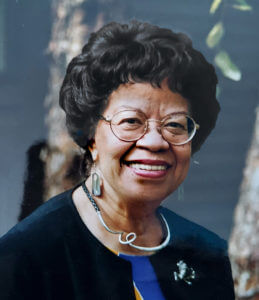
Elsie Y Cross, First Chair of the NTL Board after the 1975 reorganization and a pioneering diversity consultant to major US Corporations and author of early books on diversity and inclusion in organizations.
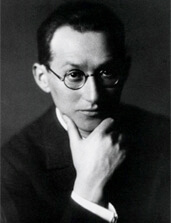
Kurt Lewin - a unique personal history.
Kurt Lewin was born in 1890, in Prussia, to a middle-class Jewish family. He moved to Berlin where he earned a doctorate degree from the University of Berlin and developed an interest in Gestalt psychology. He volunteered for the German army in 1914 and was later injured in combat.
These experiences had a major impact on his development of Field Theory, the notion that individual traits interact with the environment to cause behavior, and his later study of group dynamics. After lecturing on philosophy and psychology at the Psychological Institute of the University of Berlin, Lewin was invited to Stanford University as a visiting professor in 1930, after which he emigrated to the US and taught at the University of Iowa until 1944.
Lewin is known for his statement that "There is nothing as useful as a good theory". His connection of research to action reflected his belief that research should have practical applications. Lewin and his graduate students conducted what are now considered to be classic studies of the influence of group practices and democratic leadership on change behavior. He applied his research in work with the US government during World War II, and in 1945 established the Group Dynamics Institute at the Massachusetts Institute of Technology.
Kurt Lewin was a prolific writer, publishing over 90 articles and 8 books. Today he is known as the founder of modern social psychology, having influenced experiential adult-learning, group-dynamics theory and practice, human-interaction training, system-change methodologies, and action research.
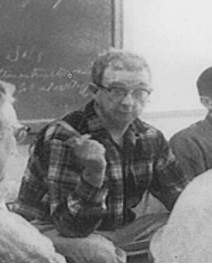
Leland Bradford, Director of Adult Education for the National Education Association, was a leader in innovative adult education technologies. He became the lead organizer of what was then named the National Training Laboratory in Group Development and served for twenty-five years in that role.
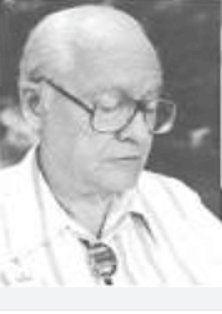
Ronald Lippitt, a social psychologist affiliated with the University of Michigan, had been a graduate student of Lewin's, and co-authored a classic study of democratic leadership and group-dynamics. Lippitt became a key contributor to the explosion of research and practice innovations in small group behavior and social change that followed through the 1980s.
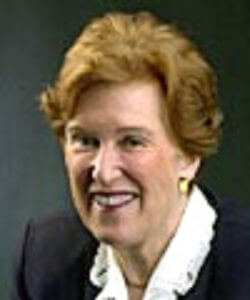
Barbara Benedict Bunker A licensed psychologist, nationally and internationally known for her work systematizing a number of large group methods of organization and community change that work at the systems level. Emeritus member of the faculty of the University of Buffalo

Harold Kellner Psychologist, university teacher, and early consultant to major corporations about issues of gender and race.
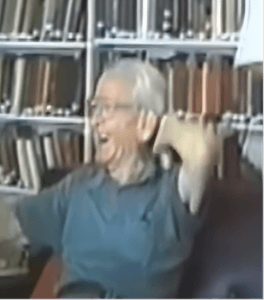
Ken Benne, faculty member of the Teachers College, Columbia and later at the University of Illinois at Urbana-Champaign, was a scholar of democracy and social change. He published over 200 articles and books in philosophy, education, social science and organizational change. Ken reflected, perhaps more than the other founders, Lewin's linkage of democratic leadership and practice with small-group dynamics and social action.
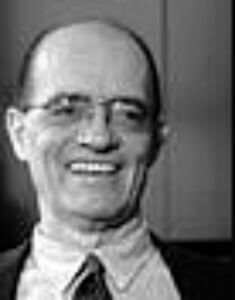
Peter Vaill, Pioneer and thought leader in the fields of Organization Behavior and Organization Development. Professor of business and widely read author of numerous books about organizational practice theory and learning.
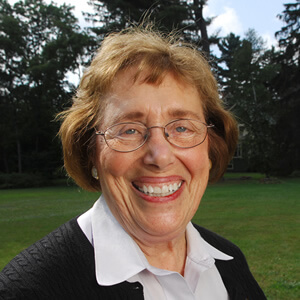
Edith Seashore Board Chair who in 1975 initiated the restructuring of NTL as leader of the "four horsepersons". A major figure in the growth of Organization Development education. Co-founded, with Morley Segal, the AU/NTL Masters Degree in Organization Development, a partnership that lasted for over 25 years. She taught regularly in that program and other graduate university programs in OD, personal development and change courses.
